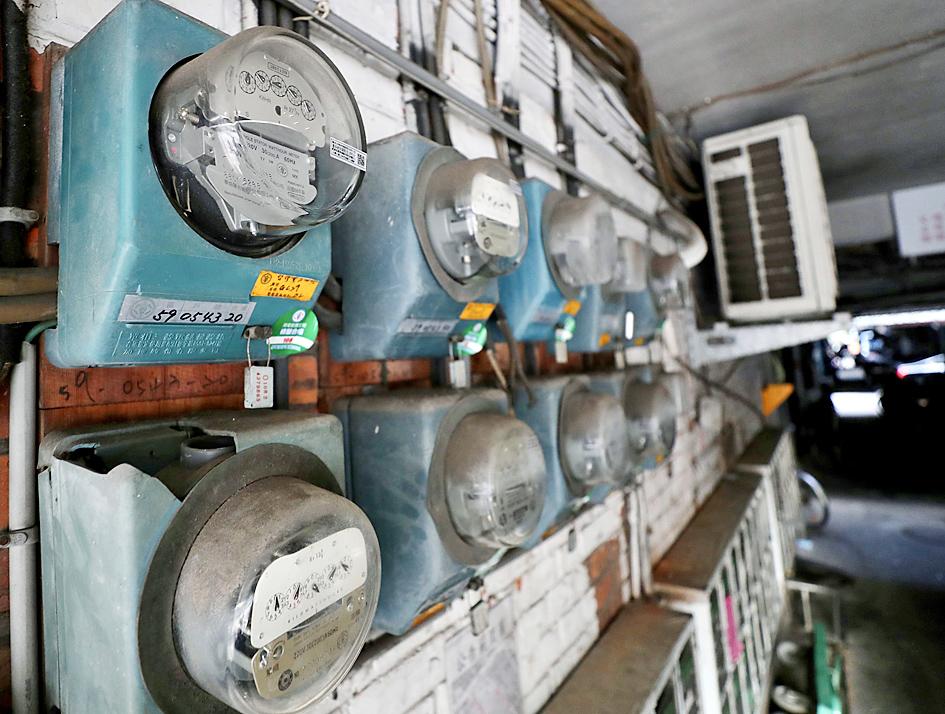The No. 2 reactor at the Guosheng Nuclear Power Plant in New Taipei City’s Wanli District (萬里) experienced a malfunction that triggered an automatic shutdown early yesterday morning, Taiwan Power Co (Taipower, 台電) said.
The exact cause of the incident is still being investigated, but there is no risk of a radiation leak, the state-run utility said.
“While we are still investigating the exact cause, the automatic shutdown was safely executed and there is no danger from radiation,” Taipower spokesman Chang Ting-shu (張廷舒) said.

Photo: CNA
The malfunction occurred at 6:33am, triggering an emergency shutdown, taking 985 megawatts of power offline, Chang said.
The control rods have now been fully lowered into the reactor and Taipower would apply with the Atomic Energy Council for the unit to be restarted as soon as the malfunction is resolved, he said.
However, it would take three days before the reactor reaches maximum output, Taipower said.
“The malfunction took place early in the morning during low power demand and it was possible for us to dispatch our reserve capacity immediately, leading to no loss of power [to the grid],” Chang said. “With the nation’s hydropower system full after the recent rains, we should be able to cope while the Guosheng Nuclear Power Plant’s No. 2 reactor remains offline.”
The operating reserve ratio is expected to remain “green,” or above 10 percent, in the coming days, but might dip into “yellow” territory, or 6 to 10 percent, during nighttime peak periods before the reactor is restarted, Taipower said.
As the mercury spiked close to 38°C, the nation’s electricity consumption reached 38.84 gigawatts (GW) at 1:50pm yesterday, with an operating reserve ratio of 10.17 percent, the company said.
The No. 1 reactor at the Guosheng power plant went offline on July 1 after the facility ran out of space to store spent nuclear fuel.
The No. 2 reactor is expected to keep generating power until March 2023, when its operating permit expires, Taipower said.

The US dollar was trading at NT$29.7 at 10am today on the Taipei Foreign Exchange, as the New Taiwan dollar gained NT$1.364 from the previous close last week. The NT dollar continued to rise today, after surging 3.07 percent on Friday. After opening at NT$30.91, the NT dollar gained more than NT$1 in just 15 minutes, briefly passing the NT$30 mark. Before the US Department of the Treasury's semi-annual currency report came out, expectations that the NT dollar would keep rising were already building. The NT dollar on Friday closed at NT$31.064, up by NT$0.953 — a 3.07 percent single-day gain. Today,

‘SHORT TERM’: The local currency would likely remain strong in the near term, driven by anticipated US trade pressure, capital inflows and expectations of a US Fed rate cut The US dollar is expected to fall below NT$30 in the near term, as traders anticipate increased pressure from Washington for Taiwan to allow the New Taiwan dollar to appreciate, Cathay United Bank (國泰世華銀行) chief economist Lin Chi-chao (林啟超) said. Following a sharp drop in the greenback against the NT dollar on Friday, Lin told the Central News Agency that the local currency is likely to remain strong in the short term, driven in part by market psychology surrounding anticipated US policy pressure. On Friday, the US dollar fell NT$0.953, or 3.07 percent, closing at NT$31.064 — its lowest level since Jan.

The New Taiwan dollar and Taiwanese stocks surged on signs that trade tensions between the world’s top two economies might start easing and as US tech earnings boosted the outlook of the nation’s semiconductor exports. The NT dollar strengthened as much as 3.8 percent versus the US dollar to 30.815, the biggest intraday gain since January 2011, closing at NT$31.064. The benchmark TAIEX jumped 2.73 percent to outperform the region’s equity gauges. Outlook for global trade improved after China said it is assessing possible trade talks with the US, providing a boost for the nation’s currency and shares. As the NT dollar

The Financial Supervisory Commission (FSC) yesterday met with some of the nation’s largest insurance companies as a skyrocketing New Taiwan dollar piles pressure on their hundreds of billions of dollars in US bond investments. The commission has asked some life insurance firms, among the biggest Asian holders of US debt, to discuss how the rapidly strengthening NT dollar has impacted their operations, people familiar with the matter said. The meeting took place as the NT dollar jumped as much as 5 percent yesterday, its biggest intraday gain in more than three decades. The local currency surged as exporters rushed to